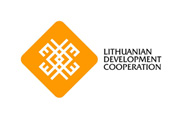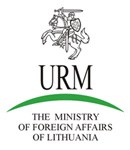Yesterday in Vilnius, Georgia has initialed its Association Agreement with the European Union. It was the culmination of work of two administrations, as well as numerous civil servants and diplomats, who advanced within the frames of Eastern Partnership initiative since December 2008 and even longer in various other projects aimed at bringing Georgia closer to Europe.
Therein lays a lesson for the future: today`s political victories are no longer led by political strongmen. These are mundane, often anti-climactic affairs, won through dedication of citizens and their elected representatives, and through the hard, routine work of civil servants over the years. More of that is yet to follow for Georgia and Moldova.
The about-face of Armenia and then Ukraine on EU were a sobering reminder that Tbilisi has only caught onto the railings of the departing train. It has no time to waste if it wants to enter into the last carriage. A year ahead will be challenging, as the country strives to meet EU benchmarks for signing the agreement. The years after - when all 28 member states will have to ratify it - will be doubly so.
Let us - cautiously - consider that the political will to seek closer alliance with Europe is a given. There are few other, often unglamorous, tasks ahead that may help make the road to Europe less winding.
Firstly, the politicians - aided by civil society and the EU itself - should rightsize Georgians` expectations. The membership is not yet on the horizon, and the implementation of the signed Agreement won’t suddenly make the rivers of milk and honey flow. It will, however, help Georgian business have better access to markets, allow for visa-free travel to Schengen countries, protect the Georgian consumers in several key ways and strengthen public administration. The AA won`t directly address Georgia`s security concerns either. But with Europeans (and Russia) getting accustomed to Georgia as a part of the European family, it might become easier to ward off further threats.
The pessimists must also be assuaged. When Georgians talk about Europe, they imagine Nordic or German states - in their view, an orderly and affluent paradise. Many think Georgia, with its mixture of Mediterranean and Middle Eastern attitudes - can never measure up. But Europe is more diverse than that. In several key ways - such as prevalence of corruption, growth rate in the past decade, Georgia has put itself ahead of quite a few new, and even some old EU members. This is a success to be pointed out, celebrated, preserved and built upon.
Secondly, the new cabinet and - especially the parliament - must etch it into their minds that coming years are all about predictability, process and procedures. There should be no nasty surprises and dangerous oscillations in domestic politics.
The regular order of the day would include passing of about 300 new laws, in addition to all the domestically generated legislation that will be needed to shore up reforms. For Europe, the process matters just as much, if not more, than the result. This means ending the past practice of rushing the laws through the parliament and paying more attention to committee work, making sure the process is inclusive, and the concerned groups of interest had their say. It will also save time in the future: in their race towards the EU, some new members voted in the laws without even taking time to translate them. They have obviously stumbled, when it came to implementation.
Approaching Europe does not require a political unanimity on each issue, but a carefully crafted consensus. This means political horse-trading and lengthy public consultation. If there are delays, then can be explained if at every stage there is a clarity about procedures - who takes decisions, when, how and under what timeframe.
In the coming years, when the AA will be up for signing and then ratification, no controversial issue in Georgia will remain domestic for long. It will be measured and scrutinized, often by less than generous audience. The Georgian political class must abandon the instinct of deriding the critics. Instead, the fiercest of them must be engaged, invited to debate and tackled through argument as soon and as extensively as possible. Civil and diplomatic service should be beefed up to pre-empt and furnish counter-arguments.
All of this brings us to the third, and most important point - Georgia must cherish its experts and build its civil service. Often derided as "bureaucrats", these people hold in mind and follow up on the mountain of European processes and procedures. Through recruiting some brilliant individuals, Georgia has managed to advance considerably down the road of reforms. But many consider collective decision-making a superior form of intelligence, since it allows for more ordinary officers to provide equally efficient and - importantly - more sustainable results. Individual brilliance can only go so far, if it is not backed by a procedural, merit based and ethical bureaucracy.
Those civil servants that have - often for meager salaries and no job security - helped Vilnius become the reality must be protected and promoted. New staff must be trained and hired - EU will chip in funds for this, but only if Georgia adopts more civilized attitude towards creating depoliticized and permanent, career civil service.
A practice of brutal and massive reshuffles of civil servants with each new minister`s appointment must end (some key Ministries are already turning the tide). More senior civil servants must be placed in decision-making positions, currently reserved for the political appointees. They will become permanent fixtures for their European counterparts well beyond the next electoral cycle and will ensure institutional memory and continuity to aid future governments.
The Foreign Ministry, whose budget has been consistently falling for the past years, must be allowed to at least double its European department. Further down the road, as AA implementation commences, Georgia must consider whether under the general shortage of qualified personnel it makes sense to merge the two offices that now deal with Europe - that at the Foreign Ministry and the State Minister for European integration.
And finally - Georgia needs more professional parliament. The MPs would need to become much more aware of what Europe is and how it works. In the run-up to Vilnius, many have struggled to grasp the difference between initialing and signing of AA. Some still confuse the European Council with the Council of Europe. This calls for more professional aides and better briefings. Think tanks have a lot to offer in terms of training, but it is up to the Parliament’s leadership and the party whips to shepherd the MPs.
All of these recipes mean increased spending on public administration. Yes, it will be hard for some to climb down the populist high ground of cutting the costs of bureaucracy. It might be even harder for the others to depart from liberal dogmatism of doing away with the professional civil service altogether. But this is an inevitable price to pay, so that Georgia is more predictable to its citizens and to the EU.
Jaba Devdariani was the Director of International Organisations Department at the Georgian Ministry of Foreign Affairs in 2012-2013, he is one of the founders of Civil Georgia

 RSS
RSS Mobile
Mobile Twitter
Twitter Facebook
Facebook



